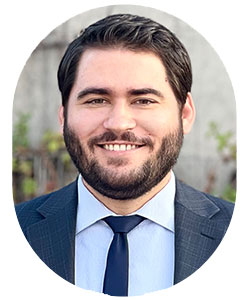Listen to this Page:
Quick Navigation:
In Arizona, Shannon’s Law targets the unlawful discharge of firearms within city limits. Passed in 2000 and named after Shannon Smith, a 14-year-old Phoenix resident killed by a stray bullet, the law was intended to crack down on celebratory gunfire and other irresponsible uses of firearms. Violating this law can result in serious criminal penalties, making it crucial to understand its implications.
“Unlawful discharge of a firearm” crime is defined in ARS 13-3107 as a class 6 felony offense in Arizona. But what makes this crime a felony? Conitnue reading to learn why firing a gun can be considered a reckless offense that leads to hefty penalties.
This crime is considered a dangerous offense that can make even first-time offenders serve time in prison.
Even if your intentions were far from negligent, you need to hire a highly qualified and professional defense attorney when charged with unlawful discharge of a firearm. Having a felony on your record can have serious ramifications, including losing the right to even own a firearm. The attorneys at Colburn Hintze Maletta are just a call away and capable of helping you get your charges reduced or even dismissed completely.
Charged with Unlawful Discharge of a Firearm?
Speak with Our Defense Attorneys Now About How to Fight This Charge.
Or, Continue Reading Below About:
Illegal Discharge of a Firearm & Arizona Shannon’s Law
“Dangerous Offense” Definition
ARS 13-3107 defines a “dangerous offense” as a crime involving the use, discharge, or threatening exhibition of a dangerous weapon.
What it means for an offense to be classified as “dangerous” is that the penalties you are facing are increased, should you be convicted. This also implies prison time is mandatory for first-time offenders.
What is Unlawful Discharge of a Firearm?
ARS 13-3107 gives a solid definition of unlawful discharge of a firearm. The statute explains that a person is guilty of a class 6 felony when, with criminal negligence, he or she discharges a firearm within or into the limits of any municipality. Contact Colburn Hintze Maletta today to know more about ARS 13-3107.
There are a couple of terms we have used above to define the unlawful discharge of a firearm. These are “criminal negligence” and “municipality”. Criminal negligence means a person has failed to become aware of an unjustifiable or substantial risk that certain circumstances exist, or a certain result will occur.
It is worth noting that for the risk to be regarded as substantial or unjustifiable, it must be of such degree and nature that the failure to become aware of it gives room for a massive decline in the standard of care, which a reasonable person would pay attention to in the situation.
A municipality, on the other hand, simply refers to any town or city. So, to recap the definition of unlawful discharge of firearms, a person is guilty under this section of the criminal code if they commit two actions.
These criminal actions are:
- Discharge a firearm into or within the limits of a municipality
- While discharging a firearm, they do so with criminal negligence
How was Arizona Shannon’s Law Created?
Unlawful discharge of a firearm is sometimes referred to as Arizona’s Shannon’s Law or simply Shannon’s Law. The name “Shannon’s Law” was settled upon after teenager Shannon Smith was struck with a stray bullet. She was in the backyard of her Phoenix home when the incident took place. Unfortunately, Shannon, who was just 14 years old at that time, was fatally struck by the stray bullet.
The Arizona legislature passed Shannon’s Law in 1999 when the public was angered even further at the fact that the offender could only be charged with a misdemeanor. This meant unlawful discharge of firearms became a felony.
Have you been charged with unlawful discharge of a firearm? Contact Colburn Hintze Maletta to speak to an attorney about your Arizona Shannon’s law case.
According to ARS 13-3107, there are some exceptions to Arizona Shannon’s law. These exceptions include:
- The gun was fired over one (1) mile away from any structure that is occupied.
- The gun was fired in self-defense. Self-defense, in this case, must be lawful.
- The person who shot the gun was defending themselves against an animal attack.
- Blanks were used when the gun was shot.
- The gun was fired at a highly monitored firing range.
- The gun was fired during a hunting season. You must note that the Arizona Game & Fish Commission sets some limitations on hunting, and this is normally investigated if this is the grounds for defense in court.
- The gun was fired as per the instructions of an animal control officer.
- The gun was fired to control “nuisance wildlife”. In this case, you will have to prove that you had a permit from the Arizona Game & Fish Department.
- You have obtained a special permit by law enforcement to fire a weapon.
Need a comprehensive explanation of the exceptions to Shannon’s law? Call Colburn Hintze Maletta at (602) 825-2500. The law firm is based in Arizona and will be more than willing to assist.
What are the Penalties for Arizona Shannon’s Law?
The penalties for unlawful discharge of a firearm are based on two factors. These are:
- Whether you have faced felony charges before.
- Whether the offense is charged as “dangerous”.
The table below gives more insight into penalties for unlawful discharge of firearms.
| First-time offense | Second historic prior felony | Third prior felony | |
| Potential Prison Ranges (Non-dangerous). Probation eligible/prison time ranging from: | .33 years to 2 years (potential probation eligibility) | .75 years to 2.75 years | 1 year to 5.75 years |
| Potential Prison Ranges (Dangerous) Mandatory prison time ranging from: | 1.5 years to 3 years | 3 years to 4.5 years | 4.5 years to 6 years |
Defenses to Unlawful Discharge of a Firearm / Shannon’s Law
As with every offense, there are defense tactics that can apply to criminal charges. The most common defenses to Shannon’s law include:
- Lack of evidence
- No negligence
- Constitutional violations
- Mistaken identity
- Statutory defenses
Lack of Evidence
The state must prove “beyond a reasonable doubt” that you have committed a crime. In this case, DNA analysis or fingerprint analysis can be conducted to prove your innocence.
Gunshot residue and chemical testing of the gun found at the crime can also be conducted to prove that you did not have contact with it. It is imperative that the accused remain silent and not make admissions to firing the weapon, even if it was an accident. The State must prove beyond a reasonable doubt every element of the offense.
No Negligence
The state must prove that there was an act of “criminal negligence”. If it cannot do that beyond a reasonable doubt, then it is in no capacity to prove its case against the defendant. The court needs the accuser to show that you failed significantly to obey safety guidelines.
Constitutional Violations
Constitutional violations occur if the police violate your rights during an arrest. These rights include the right to counsel, Miranda rights (refuse to answer questions and request an attorney), and the right to remain silent.
Mistaken Identity
This normally occurs in a place with a large gathering. Someone gets excited and shoots a firearm. Now, the police arrest the wrong person and ask witnesses to come forward and prove that he/she actually pulled the trigger. Since the person is already in handcuffs, the witnesses brought forward are likely to “confirm” that he/she is guilty.
However, this may not be the case. That being said, a defense attorney from Colburn Hintze Maletta will prove your innocence by submitting documents or testimony indicating mistaken identity. This may include where you were when the incident took place and what you were doing at that time.
Statutory Defenses
As mentioned earlier, ARS 13-3107 outlines numerous exceptions to unlawful discharge of firearms. Some of these are acting in self-defense and if blanks were shot from the weapon you used. A criminal defense attorney will check if at least one of these exceptions applies to your charges.
How Colburn Hintze Maletta Can Help Win Your Case?
One of the first things you need to do when charged with unlawful discharge of a firearm under ARS 13-3107 is to hire an experienced defense lawyer from Colburn Hintze Maletta.
Your defense lawyer will diligently and aggressively fight on your behalf so the charges you are currently facing can be lowered or even dismissed completely.
Having represented numerous clients in court facing charges such as these, your Colburn Hintze Maletta attorney fully understands the proceedings of cases of unlawful discharge of a firearm. We are happy to explain what you can expect before and during the process of fighting these charges. For more information, call us now at (602) 825-2500.

Timothy Hintze is a well-respected and aggressive trial lawyer having represented clients in courts throughout the state of Arizona. He has litigated hundreds of criminal matters ranging from complex felony cases to misdemeanor offenses, as well as a dedicated advocate for family law clients. Tim was also awarded the distinction of being named a Super Lawyers Rising Star and selected by the National Trial Lawyers Association as a Top 40 Under 40 Attorney.
Always Available 24/7 for Legal Help
Schedule an Appointment Today!
Call Us Now to Speak with an Attorney (602) 825-2500
Real Client Reviews
Below are just a few of what our clients have to say!








